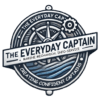Working on petrol fuel systems can be dangerous if you’re not careful. Petrol is highly flammable, and even a small spark can cause a fire or explosion. Let’s learn how to stay safe when working on these systems.
Why Petrol is Risky
- Explosion Risk: Petrol fumes are invisible but can build up in spaces like your boat’s engine bay. These fumes can ignite if there’s a spark.
- Fire Risk: Petrol leaks or spills can catch fire easily.
Remember: Safety comes first. If you’re unsure about anything, always ask a qualified marine mechanic for help.
Steps to Work Safely
1. Isolate the Engine
Before you do anything, make sure the engine won’t accidentally start:
- Disconnect the fuel pump: This stops petrol from flowing.
- Disconnect the coil pack: This prevents the engine from sparking.
2. What About Newer Engines?
Newer engines might need a computer to turn off safely. If your boat has a modern engine, you’ll need a mechanic with the right tools to isolate it.
Other Safety Tips
Ventilation is Key
Petrol fumes need to escape. Open the engine bay and run blowers (if installed) to clear out the fumes before starting work.
Wear the Right Gear
- Gloves to protect your skin.
- Safety goggles to protect your eyes.
- Fire-resistant clothing for extra protection.
When in Doubt, Call a Mechanic!
If anything seems confusing or risky, don’t guess. A qualified marine mechanic can do the job safely and properly.
Keeping your vessel in top shape doesn’t have to be difficult. Explore The Everyday Captain for more, actionable advice, step-by-step guides, and helpful resources designed to keep you safe, save you money, and make boating more enjoyable. Whether you’re tackling a repair, improving maintenance, or just learning the basics, The Everyday Captain has you covered.



